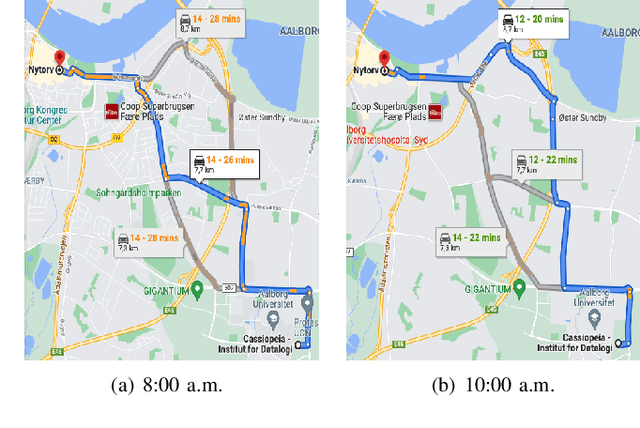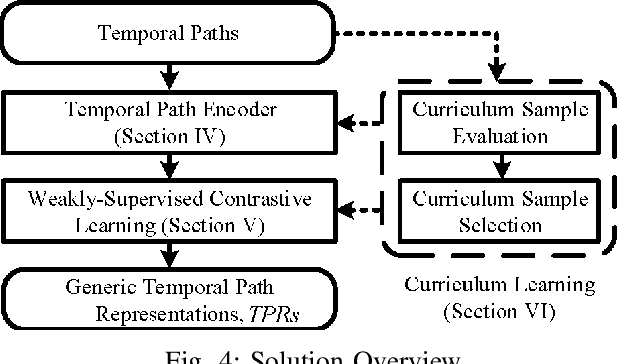Weakly-supervised Temporal Path Representation Learning with Contrastive Curriculum Learning -- Extended Version
Paper and Code
Apr 15, 2022



In step with the digitalization of transportation, we are witnessing a growing range of path-based smart-city applications, e.g., travel-time estimation and travel path ranking. A temporal path(TP) that includes temporal information, e.g., departure time, into the path is fundamental to enable such applications. In this setting, it is essential to learn generic temporal path representations(TPRs) that consider spatial and temporal correlations simultaneously and that can be used in different applications, i.e., downstream tasks. Existing methods fail to achieve the goal since (i) supervised methods require large amounts of task-specific labels when training and thus fail to generalize the obtained TPRs to other tasks; (ii) through unsupervised methods can learn generic representations, they disregard the temporal aspect, leading to sub-optimal results. To contend with the limitations of existing solutions, we propose a Weakly-Supervised Contrastive (WSC) learning model. We first propose a temporal path encoder that encodes both the spatial and temporal information of a temporal path into a TPR. To train the encoder, we introduce weak labels that are easy and inexpensive to obtain and are relevant to different tasks, e.g., temporal labels indicating peak vs. off-peak hours from departure times. Based on the weak labels, we construct meaningful positive and negative temporal path samples by considering both spatial and temporal information, which facilities training the encoder using contrastive learning by pulling closer to the positive samples' representations while pushing away the negative samples' representations. To better guide contrastive learning, we propose a learning strategy based on Curriculum Learning such that the learning performs from easy to hard training instances. Experiments studies verify the effectiveness of the proposed method.
 Add to Chrome
Add to Chrome Add to Firefox
Add to Firefox Add to Edge
Add to Edge